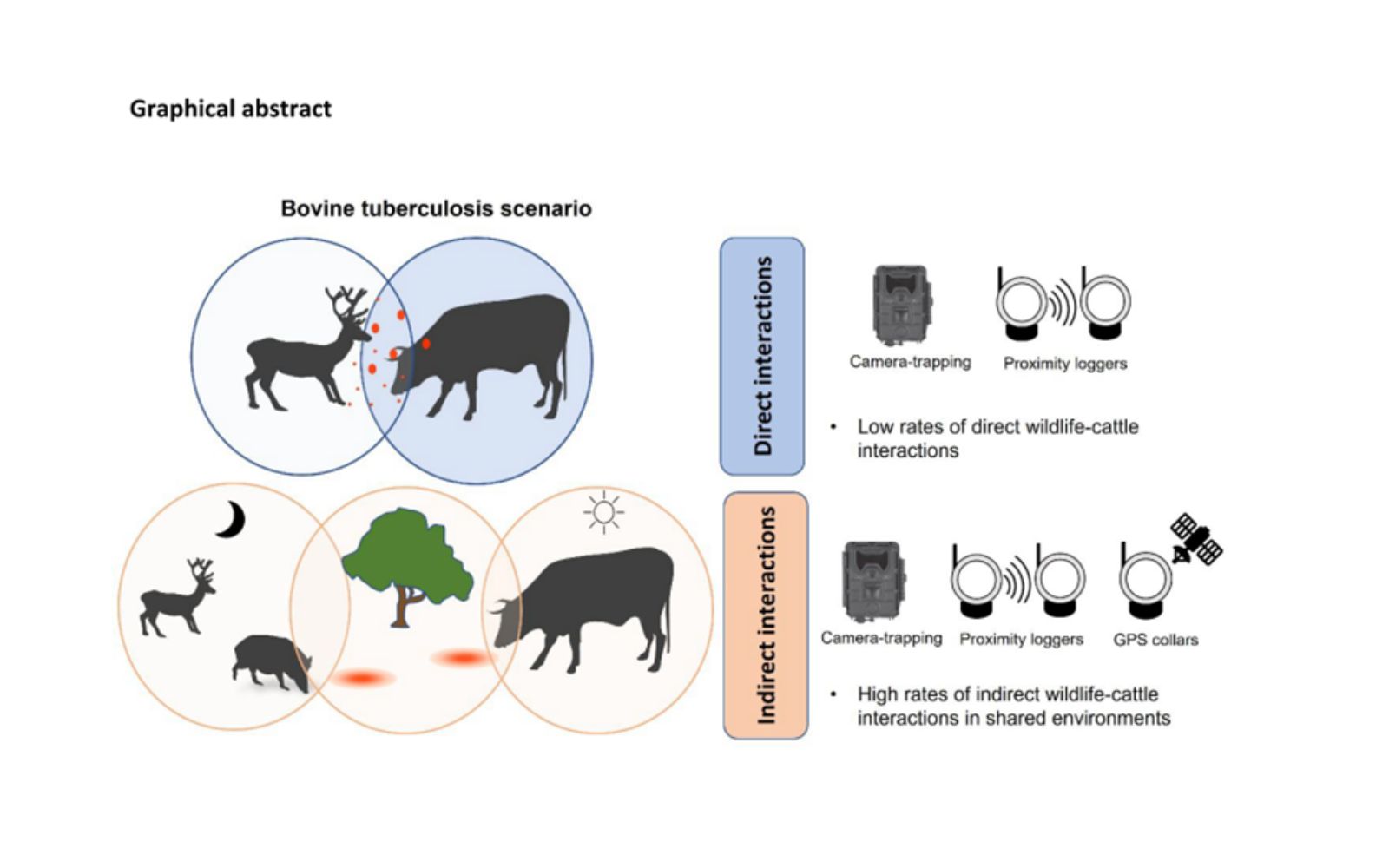A study by MED-UÉvora Researchers reveals new data on the importance of animal interactions in the transmission of Bovine Tuberculosis
A review study recently published in the scientific journal “Mammal Review” revealed important discoveries about the interactions between wild mammals and domestic livestock, and their relevance to the risk of transmission of Bovine Tuberculosis worldwide. The scientific article, entitled “Disentangling wildlife–cattle interactions in multi-host tuberculosis scenarios: systematic review and meta-analysis”, is available for online access and discloses the main criteria and methods used to define an interaction between wild animals and cattle with relevance for the transmission of bovine tuberculosis.
The risk of transmission of bovine tuberculosis (Mycobacterium bovis) is very high when infected and susceptible hosts come into physical or very close contact, with a greater likelihood of aerosol transmission. These direct interactions have been identified as the main means of transmitting the disease. However, some studies have suggested that these interactions may be rare and that indirect interactions (use of the same contaminated space by different species, at different times) may be more frequent and represent a greater risk of transmission.
This work analyzed, for the first time, the patterns of interaction between wild mammals and cattle, on a global scale, and their potential links with ecological and methodological factors, concluding that to prevent the transmission of bovine tuberculosis to cattle, attention should be paid to indirect interactions, as these were 154 times higher than direct interaction rates. The high density of wild mammals (such as wild boar and deer) increases the rates of indirect interactions, which can result in a greater risk of disease transmission to livestock.
This pioneering study was coordinated by researchers from the MED-Mediterranean Institute for Agriculture, Environment and Development, based at the University of Évora, and involved researchers from cE3c – Center for Ecology, Evolution and Environmental Changes, both R&D units belonging to the Associated Laboratory CHANGE – Institute for Global Change and Sustainability, and contributes to the definition of control and biosecurity measures, also applicable to other infectious diseases that circulate among wildlife, domestic species and human species.
The research was funded by the Fundação para a Ciência e Tecnologia, under a doctoral grant (SFRH/BD/146037/2019), the COLOSSUS project (PTDC/CVT-CVT/29783/2017) and the MOVERCULOSIS project (2022.06014. PTDC).
